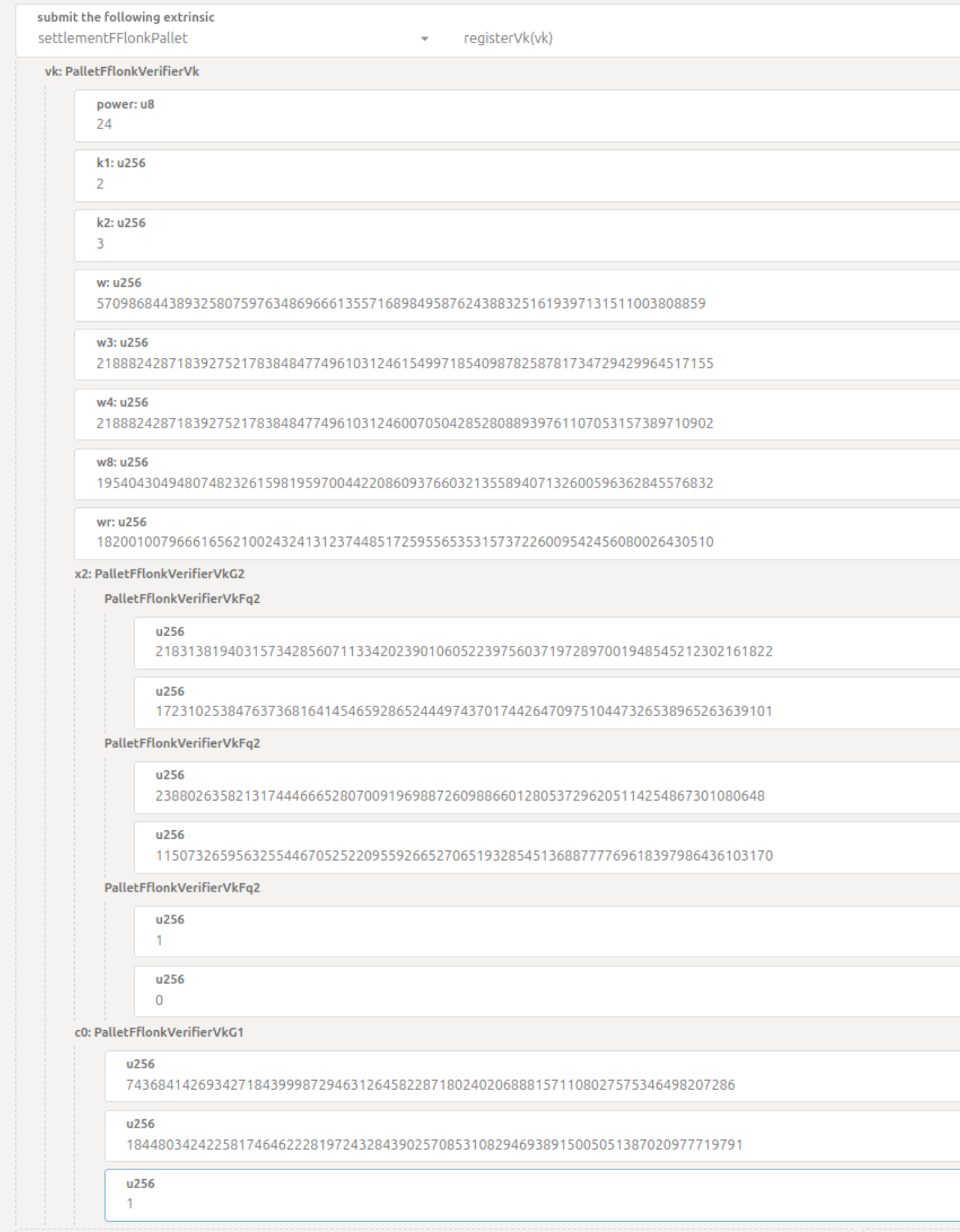Fflonk Verifier
settlementFflonkPallet
Statement hash components
- context:
keccak256(b"fflonk") - vk:
keccak256(vk.encode()) - pubs:
keccak256(pubs)
Verifier implementation
-
verify_proof()usesfflonk_verifiercrate to deserialize the proof and public inputs and then verify them against the given verification key. -
Define the following types:
pub type Pubs = [u8; 32];
pub type Proof = [u8; 768];
pub struct Vk {
power: u8,
k1: Fr,
k2: Fr,
w: Fr,
w3: Fr,
w4: Fr,
w8: Fr,
wr: Fr,
x2: G2,
c0: G1,
}
pub struct Fr(U256)
pub struct Fq(U256)
pub struct Fq2(Fq, Fq)
pub struct G1(Fq, Fq, Fq)
pub struct G2(Fq2, Fq2, Fq2) -
hash context data is
b"fflonk" -
the pubs bytes are the input ones
-
validate_vkchecks the fields value and curve points.
You can fill all the fields with both hex or decimal string: an example from Polkadot.js interface follows:

Result
The pallet's verification duties are summarized in the following code snippet:
let proof = Proof::try_from(&proof_data).unwrap();
let pubs = pubs_data.into();
let vk = vk.into();
fflonk_verifier::verify(vk, &proof, &pubs)
The submitProof exstrinsic can fail both if it's not possible to deserialize the proof (InvalidProofData) or if the proof doesn't
verify (VerifyError).